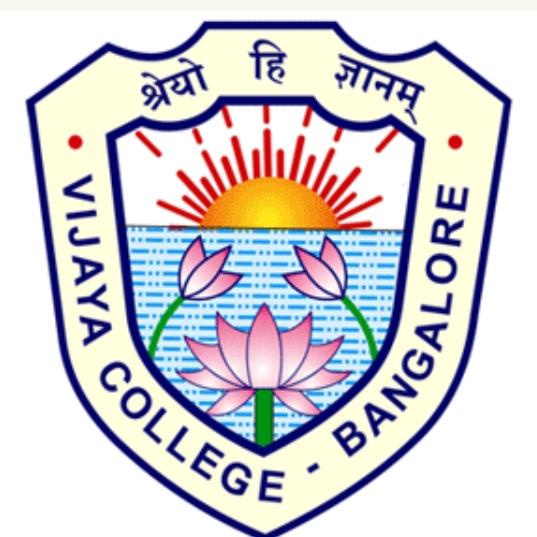
Popularly known as NSS, the scheme was launched in Mahatma Gandhiji’s centenary year 1969. Aimed at developing student’s personality through community service, NSS, is a voluntary organization of young people in Colleges, Universities and at +2 level working for a campus-community linkage.
The cardinal principle of the NSS programme is that it is organized by the students themselves, and both students and teachers through their combined participation in community service, get a sense of involvement in the tasks of nation building.
Service to mankind in society is a concept from time immemorial. People co-operate and help each other in one or the other way in their day-today life. Many social activists preached and practiced the theory of social service for the welfare of the society. Great personalities and various organizations have been striving hard with a sense of duty and responsibility to reach the needy and common man and sort out social issues, problems, etc.
OBJECTIVES OF NSS :
- Understand the community in which they work
- Understand themselves in relation to their community
- Identify the needs and problems of the community and involve them in problem-solving
- Develop among themselves a sense of social and civic responsibility
- Utilise their knowledge in finding practical solutions to individual and community problems
- Develop competence required for group-living and sharing of responsibilities
- Gain skills in mobilising community participation
- Acquire leadership qualities and democratic attitudes
- Develop capacity to meet emergencies and natural disasters
- Practice national integration and social harmony
Motto : NOT ME BUT YOU
The Motto of NSS "Not Me But You", reflects the essence of democratic living and upholds the need for selfless service. NSS helps the students develop appreciation to other person's point of view and also show consideration to other living beings. The philosophy of the NSS is well doctrined in this motto, which underlines on the belief that the welfare of an individual is ultimately dependent on the welfare of the society on the whole and therefore, the NSS volunteers shall strive for the well-being of the society.
Symbol
The NSS symbol is based on the giant "Rath Wheel" of the world famous Konark Sun Temple of Orissa. The wheel portrays the cycle of creation, preservation and release and signifies the movement in life across time and space. The wheel signifies the progressive cycle of life. It also stands for dynamism and progressive outlook of youth. The symbol thus stands for continuity as well as change and implies the continuous striving of NSS for social change.
Badge
The NSS Symbol is embossed on the badge. The eight bars in the wheel represent the 24 hours of a day. The red colour indicates that the volunteer is full of young blood that is lively, active, energetic and full of high spirit. The navy blue colour indicates the cosmos of which the NSS is tiny part, ready to contribute its share for the welfare of the mankind.
Enrollment of NSS Volunteers
- The NSS volunteers will be enrolled from the first and second year degree-class students. Preference will be given to the students who have worked as NSS volunteers at +2 level also.
- Students belonging to minority communities, scheduled castes and scheduled tribes are encouraged to participate in NSS.
- Girls are encouraged to join NSS.
- NCC cadets will not be allowed to join NSS. Similarly NSS volunteers can not participate in NCC or any other youth organization as long as they are in NSS.
HEALTHY YOUTH FOR HEALTHY INDIA
Under this theme all the health related issues may be covered which include General Health, Mental health, Spiritual Health, HIV/AIDS, Sexual Abuse, Adolescent Health, Swachh Bharat Abhiyaan, and Population Education.Activities of NSS
The Activities under NSS are two-fold, viz.- i) Regular activities, which are undertaken during the working days of the semester, and
- ii) Special Camping activities for 10 days duration in the adopted village/urban slum during vacation. Each NSS unit in the college is expected to adopt a near by village/slum and work for its all round development.
Overview Of NSS Unit Of The College
NSS unit of the college came into existence in the year 1970. Since then the programmes have been held continuously with faculty members serving as NSS program officers leading the student volunteers. The faculty of the college Prof. K Amarnath, Dr. P V Narayana, Prof. B Venkata Subbaiah, Sri. H Varada Rajan, Prof. A Sripada, Prof. Y K Jayaramappa, Prof. R V Prabhakara, Prof. A N Ramachandra, Prof. K V Channakeshava, Prof. S Mahesh, Prof. A Rajagopal, Prof. S Sundareshan, Prof. B Ajaykumar, Prof. S M Mruthyunjaya Swamy, Prof. H K Gundu Rao, Dr. D Gurumurhty and Prof. S Anil Kumar have served as NSS officers. Quite a number of 10 day annual special camps have been conducted by the college NSS unit in the adopted villages. About 50 volunteers deputed to participate in the camp would stay in the village for the complete duration of 10 days and serve there in different ways, like construction of roads and channels, repairs of school buildings, temples, cleaning of wells, desilting of lakes and tanks, tree plantation, construction of check dams, etc. These tasks are prioritized after consulting the local people. They generally assist the volunteers in the successful completion of the work. In the evening, community education programs and entertainment events are held which include skits, short plays, folk songs and dance, light music, debates, talks, etc.
Programmes are also conducted once a week in the college campus throughout the academic year giving importance to cleaning the premises, gardening, play ground maintenance, etc. Orientation classes are conducted to discuss different topics. Issues like unemployment problem, urbanization, challenges in higher education, Eco awareness, traffic awareness, information technology, human rights, etc. are discussed.
At present, Prof .Nagabushan is functioning as the Program Officer of NSS.



